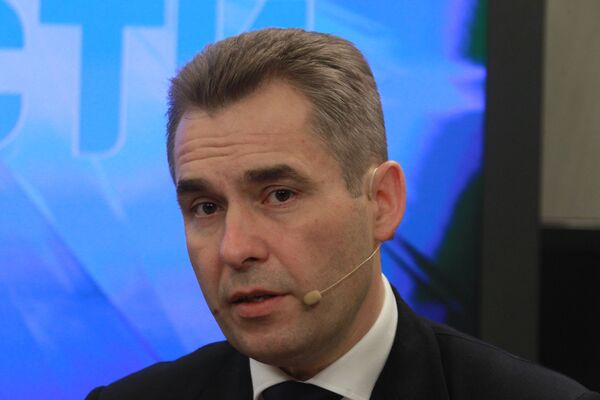The rate of teen suicides is declining but excessive media coverage portrays it as a growing trend, Russian Children's Rights ombudsman said on Monday.
“There has been a decrease in children’s suicides. There is no need to heat up the situation. There is no epidemic, but the tragedy is really here,” said Astakhov, who had previously called teen suicides “a nationwide tragedy."
According to the official statistics by the Federal State Statistics Service (Rosstat), the number of suicides committed by people under 14 fell to 240 in 2010, less than half the 500 suicides recorded in 2000.
The Russian media has reported in detail on each of 17 suicide cases that have taken place in Russia since the beginning of February.
The media reports began on February 7, when two 14-year-old girls - best friends - killed themselves by jumping from the roof a 14-storey building in the town of Lobnya, just outside Moscow. They had reportedly skipped classes for two weeks and were afraid what would happen when their parents found out.
The next day, a 14-year-old boy jumped from the window of his apartment on the 12th floor in southern Moscow. He was said to be accused of stealing a classmate's camera and had a nasty argument with his father.
The further media reports about Russian adolescences’ suicides featured teenagers slashing their veins, swallowing dangerous pills and hanging themselves.
“This outburst of media attention began after the first sensational case [the two girls in Lobnya]…The main reason for the suicide peak is the romanticized media reports that depict the cases with all the juicy details,” Anna Portnova of the Serbsky Research Institute for Forensic Psychology told RIA Novosti.
“We haven't registered any bump in suicides compared to the same period in 2011. On the contrary, the number of suicide victims in Moscow has decreased,” Portnova said.
According to the Federal State Statistics Service (Rosstat), the overall number of suicides in Russia is gradually decreasing. In 2010 there were 23 suicides per 100,000 people, as compared to 41 deaths per 100,000 people in 1995.
Apart from the media fascination with the details of each suicide case, there are numerous groups on the Russian social networking site Vkontakte, popular among teens, that suggest suicide methods.
“I just don’t want to live anymore because I’m tortured by thoughts of my past faults…My mom knows that I want to die and she can understand me as she used to think about suicide too,” writes Svetlana Fainberg, a gloomy-looking teenage girl, on a suicide community page in the Vknotakte.
Svetlana is one of the 20 percent of all young Russians who, according to the UNICEF survey released in November 2011, has “adolescent depression,” a psychological disorder that pushes teenagers to suicidal thoughts due to a weak instinct for self-preservation.
Vknotakte’s spokesman Vladislav Tsyplukhin said on Saturday that the company quickly shut down the pages that call to violence or self-killing. But new pages on suicide appear every day. A search of Vkontakte today yielded over 1,000 pages on the site that have the word “suicide” in their name.
Bertrand Bainvel, the head of the Russian UNICEF Office, said that media reported about suicides as if they were something fashionable.
“The media should tell you what to do if you feel depressed, where to go, where to call instead of reporting details of such stories,” Bainvel said, adding that UNICEF has already opened 150 “youth-friendly clinics” across Russia where teenagers can discuss their problems without being afraid that someone else will know it.
Zurab Kekelidze, the deputy head of the Serbsky psychiatric institute, said that people’s reaction to major tragedies directly depend on media coverage.
Kekelidze also said research by the Serbsky psychiatric institute showed that media restrictions on coverage of terrorist attacks to some extent softened people’s shock from the tragedies.


